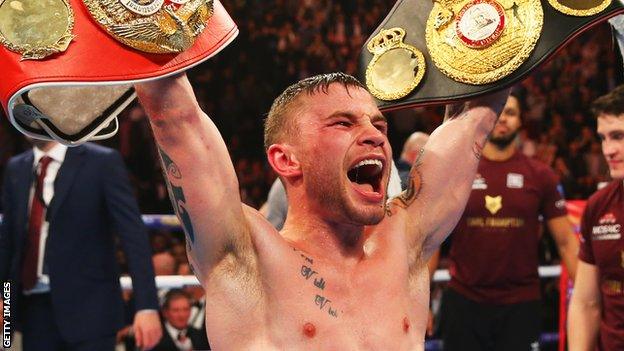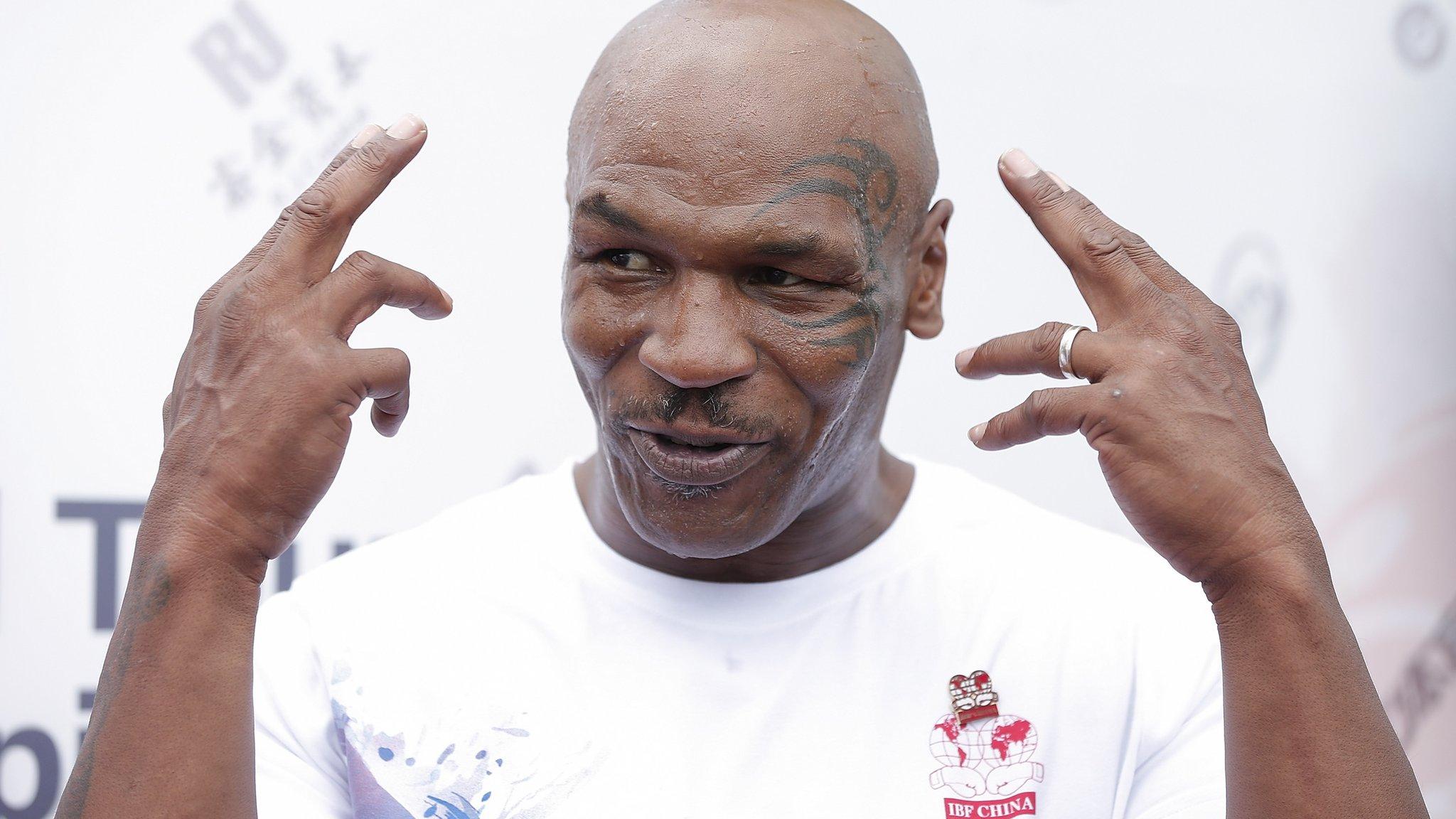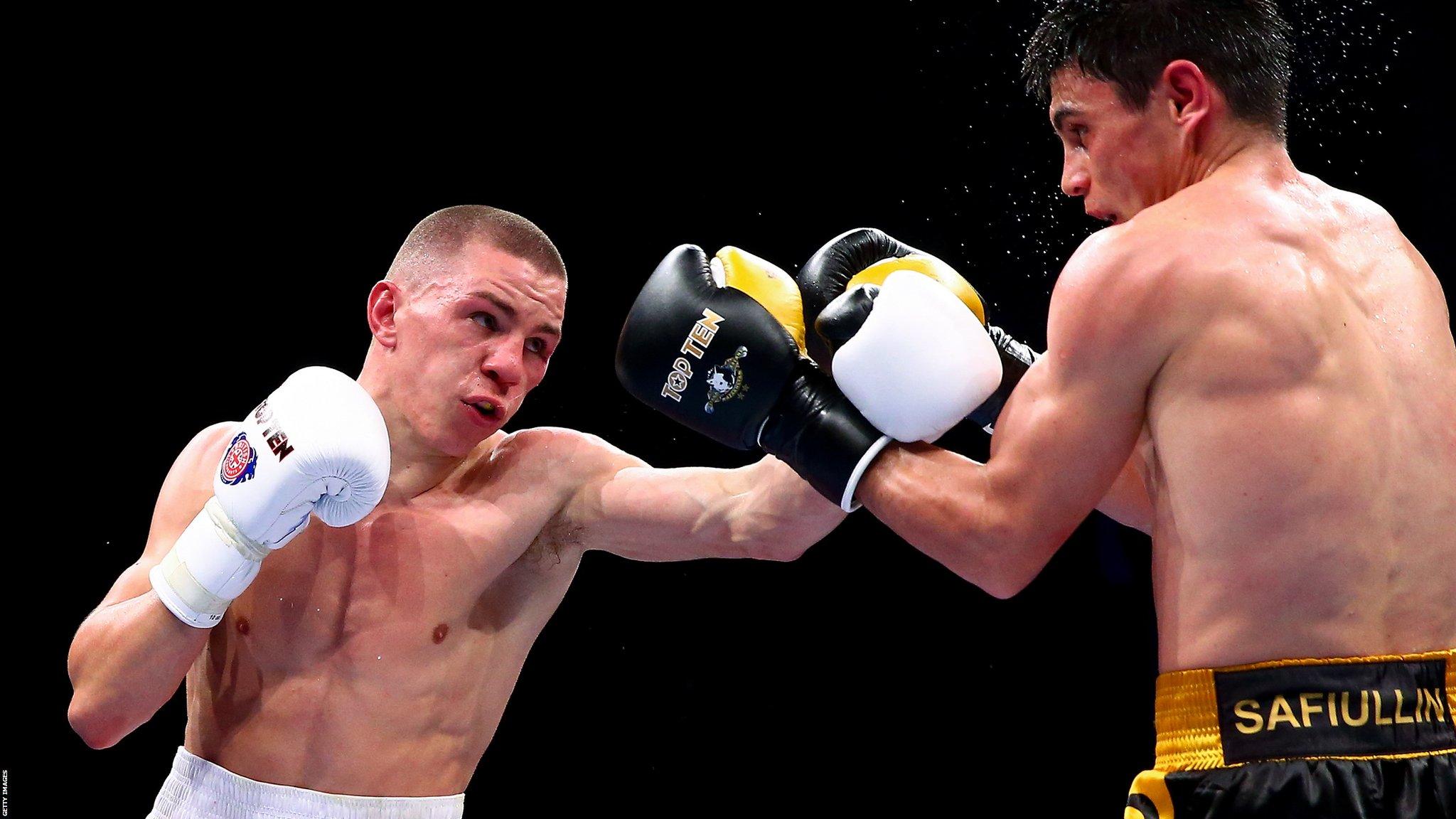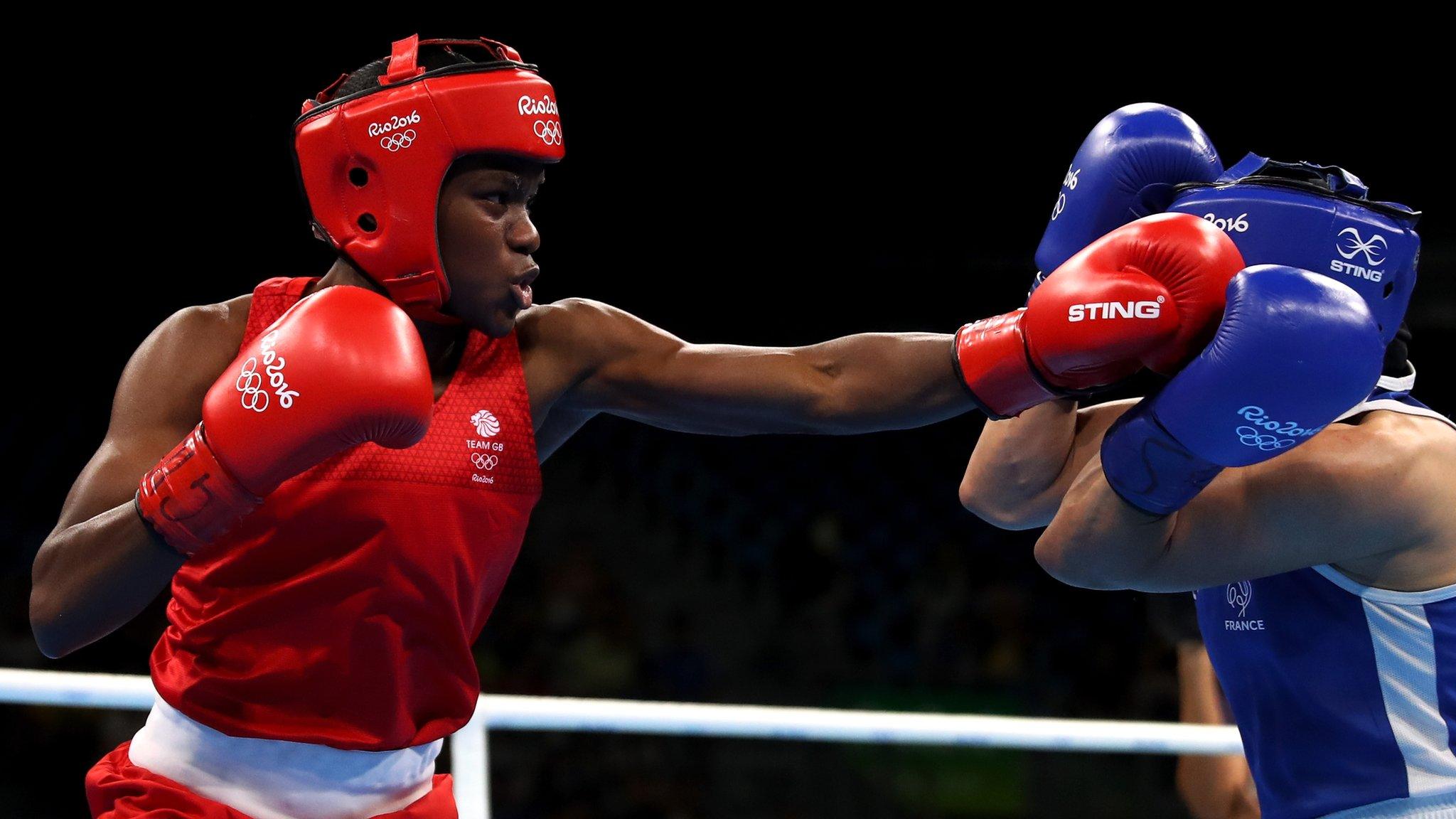Olympic professional boxing vote is criticised by Carl Frampton
- Published
- comments

Frampton has relinquished his IBF super-bantamweight title
Former world champion Carl Frampton and a number of other high-profile fighters have criticised the decision to allow professionals to box at the Olympics.
The International Boxing Association (AIBA) voted for the rule change before the Rio Games, which start on 5 August.
Northern Irishman Frampton said amateur and pro boxing were "two different sports".
The British Boxing Board of Control called on AIBA to "reconsider" its decision, saying it was "dangerous".
In a statement it said: "It is against the spirit of the Olympics, disrespectful to the many GB amateur boxers who, throughout the Olympic cycle compete around the world in qualifying tournaments."
Newly-crowned WBC world cruiserweight champion Tony Bellew also said the move was "dangerous".
He told BBC Radio 5 live: "To fight a guy with no professional experience is insane. I just can't see what there is to be gained. It's wrong to even suggest it, never mind put it in place."
The 33-year-old added that the Olympic event would be "tarnished" if a pro boxer won it.
"It wouldn't really be an Olympic gold medal," said Bellew.
"A professional winning an Olympic medal is wrong on so many levels. No-one in boxing in my opinion would take them seriously if they won the gold medal."
What do other boxers say?
Former world champions Carl Froch and Ricky Hatton both criticised the move, but the retired Froch does not consider it to be a dangerous development, saying the best amateurs are capable of beating their professional counterparts in the amateur format.
"I don't think it's any more dangerous," Froch said. "There's no headguards anymore in the amateurs. I've trained and sparred with many top amateurs: honestly they hold their own, all of them."
Former welterweight and light-welterweight world champion Hatton tweeted:, external "Goodbye amateur boxing now. Can't say I'm a fan of this."
Richie Woodhall, a former world super-middleweight champion who won a bronze medal at the 1988 Olympics, felt the motive for the change was to give amateur boxing more sparkle.
But he told BBC Radio 5 live: "I really believe that the sport is attractive enough at amateur level in the Olympics."
Amateur Conlan welcomes Rio pro move
However, 2012 Olympic bronze medallist Michael Conlan says he is happy to fight against professionals as he seeks to add gold to the bronze he won in London.
"It wouldn't bother me, I'll beat all of them," the Ireland bantamweight said.
The vote to allow pro boxers to fight at the Olympics took place at an AIBA meeting in Switzerland.
The decision means any professional can enter a qualifying event in Venezuela next month in an attempt to win selection, with 26 entry places up for grabs.
How many pros will compete in Rio?
AIBA president CK Wu said it was "difficult to anticipate" how many would try to qualify, but Woodhall does not think the big names will bother.
That view was echoed by David Price, a former British heavyweight champion who won bronze at the 2008 Olympics.
"It's 10 weeks away from Rio, so I don't think we're going to see too many professionals go through," he told BBC Radio 5 live.
"I think it's too soon. I think what they're doing is just letting everyone know that in future this is how it's going to be."
The British Amateur Boxing Association only has two spots left to fill for Rio.
In the welterweight division, Josh Kelly, external and Cyrus Pattinson, external are in contention for a place, while Pat McCormack, external looks likely to qualify at light-welterweight.
The rule changes will have very little impact on the GB Boxing team that goes to Brazil.
Speaking in April, GB Boxing performance director Rob McCracken said it would be "very difficult for a pro to take the place of someone who's been training for three years and who's been very successful over the three, three-minute rounds with the speed, reaction and timing".
He added: "It's not so easy for a professional to come back in and do that because they're 12-round fighters."
Former world heavyweight champion Wladimir Klitschko, 40, has indicated he would like to box at the Olympics but is unlikely to take part in qualifying.
The Ukrainian, who won Olympic super-heavyweight gold in 1996, takes on Britain's Tyson Fury in a world title rematch on 9 July.
Would the pros beat the amateurs?
Not according to former WBA and IBF super-bantamweight champion Frampton, who boxed as an amateur before turning professional in 2009.
"A lot of people are saying it would be unfair for amateurs because the top pros would wipe them out, but that's not the case," he said.
"I believe the top amateur boxers in the world would be able to compete with the world's top professionals over that three-minute round format with soft amateur gloves on."
Last week, former world heavyweight champion Mike Tyson said: "Some pro fighters are going to get beat by the amateurs."
There are several differences between amateur and professional boxing but the main one concerns the length of a fight.
Amateurs usually fight over three rounds, each lasting three minutes, but can box for several days in a row during a major tournament.
Professionals have fewer fights but each bout is run over a minimum of four rounds and a maximum of 12, with each round lasting three minutes.
- Published25 May 2016

- Published1 June 2016

- Published28 May 2016

- Published11 June 2018
